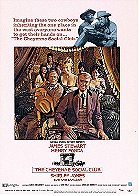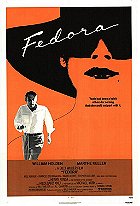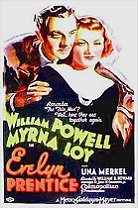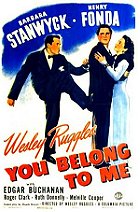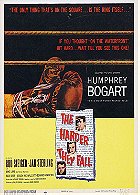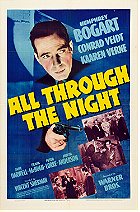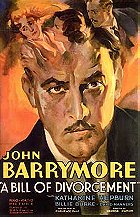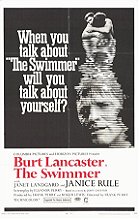*** This review contains spoilers ***
Initially I was skeptical at weather Clark Gable would make a convincing doctor but not only does he pull it off (even if he is the most gorgeous doctor ever *swoons) Men In White has to be my favourite performance I’ve seen him deliver portraying the young, idealistic and dignified Dr. George Ferguson; 60 years before George Clooney in ER. Men In White is a perfect showcase of what Gable is capable off while Myrna Loy, although not dominating the film as much still shares a mature romance with Gable, who must make difficult decisions between his profession and his love life. Rest assured I got the satisfactory amount of swooning I would expect from a pairing of these two.
I cannot stress enough just how astounding Men In White looks. This is without a doubt most stunning black & white film I’ve seen from the 1930’s. Every scene is light so immaculately with multi-layered and angled shots plus the widespread use of shadows giving the film shades of noir. Even the classic noir shot of the shadows created by blind shutters onto one’s face to show they have become imprisoned in life is present. Likewise, the art deco design of the hospital itself would likely not be practical in real life but it sure as hell looks good; needless to say the removal of eyes from the screen is easier said than done. The film’s set designer was Cedric Gibbons, a regular at MGM who helped create the distinctive look of their films in the 1930’s and surely Men In White is one of his greatest achievements.
Movies like this where common in the 1930’s, glorifying those who held jobs central to society (Tiger Shark, Night Flight, Slim). Call them propaganda but they were effective and informative. Although I don’t have any major interest in medicine or healthcare (despite both my parents being nurses) Men In White gives a real sense of awe and wonder to medical world such as when Dr. McCabe (Henry B. Walthall) the elder doctor who gives a rousing speech at the beginning of the film on all the medical advances in his lifetime (anesthesia, sterilization, surgery, x-ray) and the figures behind them. We’ve come much further since 1934, certainly when it comes to the etiquette of the doctors on display. In one scene a doctor hits on a nurse in the open for everyone else to hear while other doctors have no problem openly talking about their sex lives (“Being in love kills your sex life”). There is even one scene in which a doctor is running through the public area of the hospital wearing only a towel! If that happened today it would be all over the tabloids.
Men In White paints a picture of just how demanding a job being a doctor is, working round the clock; Dr. Ferguson works 16-18 hours a day for $20 a week (in 1934 or course). His finance Laura (Myrna Loy) has a selfish streak to her, getting frustrated with Ferguson when he’s only doing his job and one which is detrimental to saving the lives of others. Additionally Jean Hersholt (Hollywood’s great Dane and an actor who has that look of great intellect) as Ferguson’s mentor pressure’s George to put greater priority to his career than his love life. The film’s ending isn’t so predictable having me question whether or not George and Laura will still be together come the end.
Men In White also showcases corruption which can exist within hospitals when a superior doctor knowingly gives a child too much insulin, only for Dr. Ferguson to interfere even if it puts his job on the line. Once the child recovers from the insulin overdose, the superior doctor takes the credit - douche. The child, however, thanks and hugs Dr. Ferguson at the end of the film in what I feel is the movie’s most inspiring moment. Gable isn’t playing a brute here like he often does but rather someone who can project a level of warmth especially with his interaction with his child patient.
The scene in which Dr. Ferguson and the English nurse Barbara Den (Elizabeth Allen) are bonding over their loneliness and then start kissing is a breathtaking sequence. This leads to the most daring aspect of Men In White, the inclusion of abortion in the film’s plot. When I first watched the film I didn’t catch on that the big surgery scene itself was the result of a failed back alley abortion as the film’s hints are very subtle; it’s all in the undertones of the movie. That’s one reason why Men In White is worth re-watching; distinguishing what’s being said and shown versus what is really going on. If anything this is much more fun and satisfying having the movie simply spell everything out to the viewer.
When it is discovered Nurse Den attempted to get an abortion it is simply alluded to that she has a condition worse than a ruptured appendix and before the surgery itself Dr. Ferguson is questioned, “who is the man?”. It’s not made clear if the child being terminated is the result of the affair between Ferguson and Den, however, before their fling she is seen feeling unwell. Although I can’t comment of how accurate a depiction Men In White is of the medical profession I was still amazed at the level of detail in the movie from the terminology to the wide range of instruments used. One particular moment which stood out to me was the rigorously high level of sanitization the staff must go through prior to surgery. The film has an economic length of only 73 minutes but packs so much content. I’d happily become ill just to go to this hospital.
 Login
Login
 Home
Home 249 Lists
249 Lists 118 Reviews
118 Reviews Collections
Collections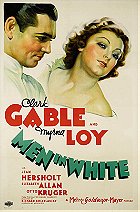
 0 comments,
0 comments, 